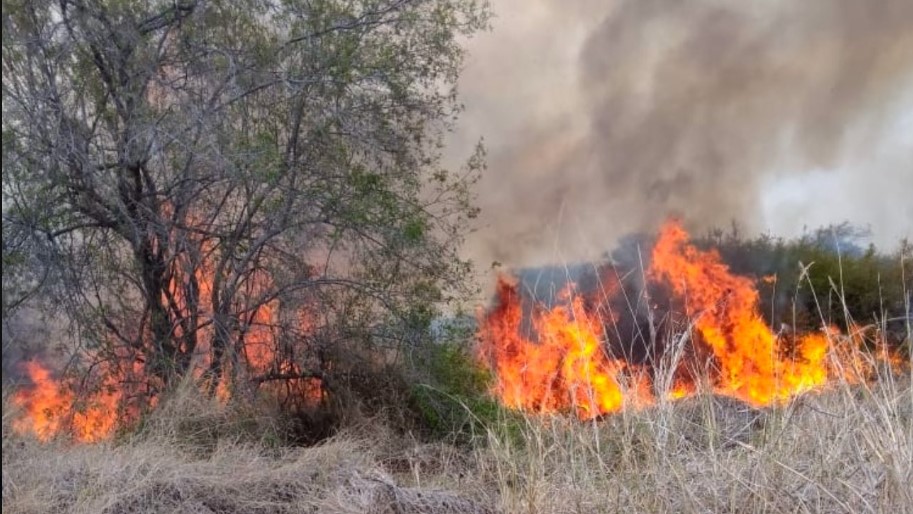Isiolo wildfire continues to rage with about 190,000 acres of grazing land destroyed - Red Cross

Attempts by a multi-agency response team and the community to establish firebreaks and contain the fire have been unsuccessful
The Kenya Red Cross has said that the wildfire in Sericho, Garbatula in Isiolo County which started five days ago is yet to be contained.
The fire, according to a statement from the Red Cross, has destroyed about 190,000 acres of grazing land since Sunday, January 19.
More To Read
- Isiolo courts investors as county pushes public–private partnerships in economic transformation drive
- Senate summons Isiolo, Kericho governors for skipping audit hearings
- What’s at stake in the COP30 negotiations?
- Court nullifies Isiolo County’s Sh7.3 billion budget over illegal process, lack of public participation
- Major global emitters off track, no country strong enough to meet climate targets - report
- African activists rally and challenge COP30 agenda
"Our teams are on the ground providing necessary assistance and monitoring the situation closely," read part of the statement.
Attempts by a multi-agency response team and the community to establish firebreaks and contain the fire have been unsuccessful, with the mobilisation of specialised equipment like bulldozers, tractors, excavators and air support by the Kenya National Disaster Operation Centre still underway.
On Sunday, the Red Cross said its personnel had been responding alongside officers from the Kenya Wildlife Service (KWS) and locals to contain the wildfire.
It further noted that the fire had spread towards Sericho, Biliki, Badana, and Basa villages.
Strong winds, hot weather
Interior Cabinet Secretary Kipchumba Murkomen confirmed the incident on Monday, noting that Isiolo's strong winds and hot weather conditions were derailing efforts to control the fire.
Meanwhile, residents have expressed deep concern over the extensive loss of grazing land, which is crucial for their livelihoods.
The chairman of the Borana Council of Elders, Mohamed Konso, described the situation as "devastating", emphasising the magnitude of the disaster.
"The fire has destroyed grazing land adequate to feed our cattle for the next two years," he lamented.
Mohamed also criticised the delayed response, pointing out that local authorities were informed 72 hours after the fire began, yet the mobilisation of resources took longer than expected.
"Despite our early alerts, the response was not swift enough to prevent the spread of the fire," he said.
The fire, which initially started in Merti, quickly spread to other critical grazing areas including Martaba, Korbesa, Malkagala, Iresaboru, Badana and Sericho, making it challenging to contain.
Though no human settlements, livestock, or wildlife have been harmed, the destruction of such vast tracts of pastureland is a significant blow to the region's economy and sustenance.
Top Stories Today













































